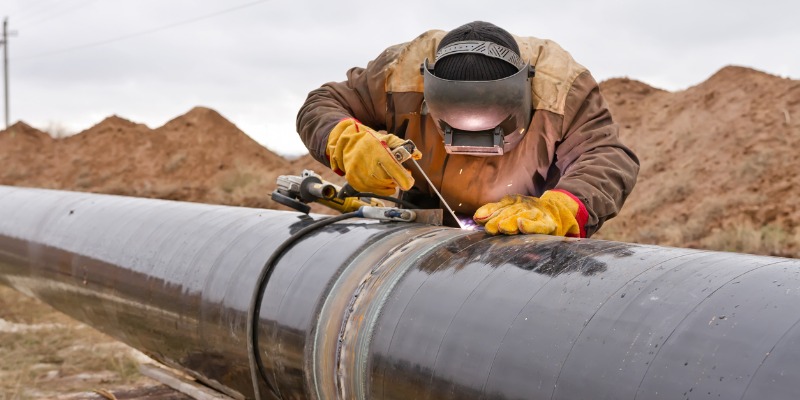Biden’s Keystone cancellation another blow to Canada’s energy sector

Despite pushback from governments across Canada, on inauguration day, President Joe Biden revoked the permit for the $10 billion Keystone XL pipeline, citing environmental concerns. This is more bad news for Albertans and yet another blow to Canada’s energy industry, which has suffered from a combination of insufficient pipeline capacity and a barrage of poor policies in recent years.
Insufficient pipeline capacity has been a major issue undermining the competitiveness of energy producers in Western Canada. Several pipeline projects have been cancelled or delayed in recent years mainly due to political opposition or regulatory impediments.
For example, the Trudeau government rejected the previously-approved $7.9 billion Northern Gateway pipeline in 2016 and imposed new regulatory hurdles (including consideration of downstream emissions, which was never part of prior assessments) on TransCanada’s proposed Energy East project. Consequently, TransCanada deemed the pipeline economically unviable and scuttled the project. And of course, infrastructure giant Kinder Morgan withdrew from the Trans Mountain Expansion project, forcing Ottawa to purchase the project in a last-ditch effort to save it.
Now, President Biden, despite committing to improving relations with Canada, has scuttled the Keystone XL pipeline, which would have carried up to 830,000 additional barrels per day from Alberta to refineries along the U.S. Gulf Coast.
The lack of adequate pipeline capacity and related restricted market access has meant that Canadian producers received far less value for their oil than their international counterparts. For example, in November 2018, the price differential between Canadian heavy crude (WCS) and comparable U.S. crude (WTI) was almost 70 per cent. The insufficient pipeline capacity and its associated depressed prices for Canadian heavy crude resulted in C$20.6 billion in foregone revenues for the energy industry in 2018 alone. That’s roughly one per cent of GDP lost because we were unable to deliver our product to international markets to secure better prices.
Clearly, cancelling Keystone XL will not only further impair Canada’s energy industry but also hurt Albertans, as the Alberta government invested at least $1.5 billion in the project. This cancelation will jeopardize jobs in Alberta (and in the United States) linked with the pipeline’s construction. It will also result in billions in lost revenue for governments in the form of lower corporate income taxes and royalties.
Ironically, cancelling Keystone XL will do nothing to lessen U.S. oil dependency and could very well result in more, not less, emissions. The U.S. Energy Information Administration recently forecasted that U.S. oil consumption, which will return to pre-pandemic levels by next year, cannot be satisfied solely by domestic supply. Scrapping Keystone XL will likely constrain the oil supply for U.S. refineries in the Gulf Coast and will force them to increase their reliance on other countries such as Venezuela and Russia. (Of course, Canada’s environmental record is much better than Russia’s or Venezuela’s.)
Moreover, there will be additional greenhouse gas emissions linked with the transportation of crude from these countries, whereas the Keystone XL pipeline would have eliminated all emissions from transportation. Put simply, cancelling Keystone XL will not affect the demand for oil in the U.S.—it will simply alter the suppliers.
By scuttling Keystone XL, the new president has inflicted further economic damage on an industry and province already reeling from years of bad policies (mostly from Ottawa) and ongoing insufficient pipeline capacity. And while the announcement may satisfy some campaign promises, it will worsen U.S. relations with its neighbour and number one trading partner while doing little or nothing for the environment.
Authors:
Subscribe to the Fraser Institute
Get the latest news from the Fraser Institute on the latest research studies, news and events.


